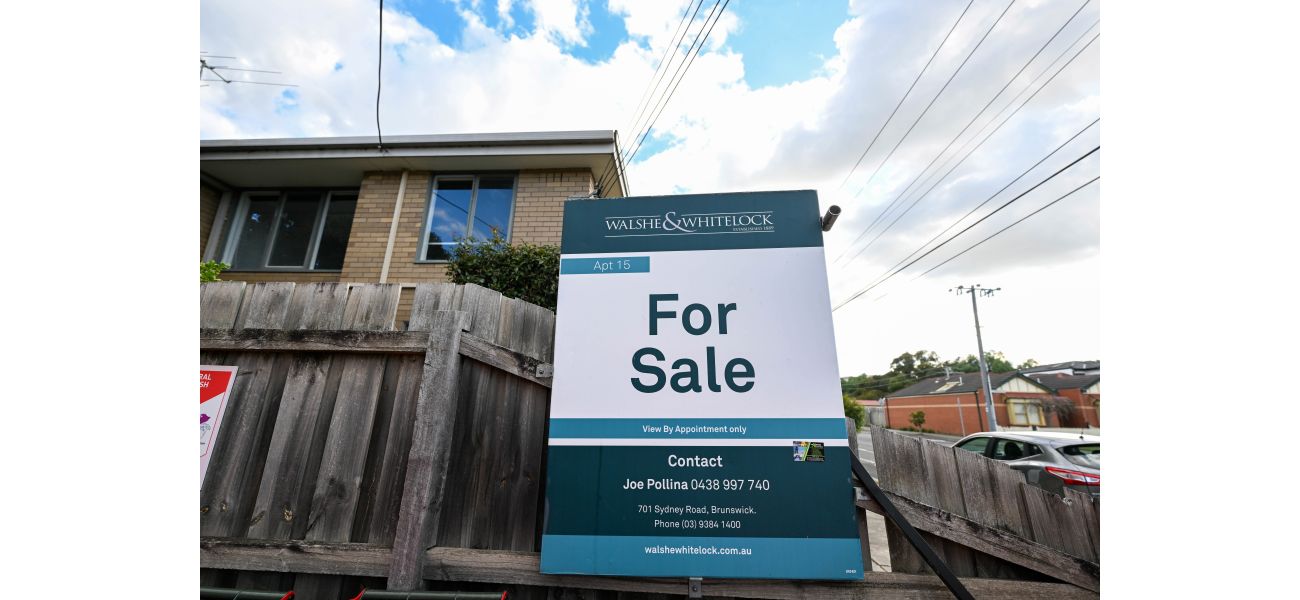Expert economist criticizes government's plan to use superannuation funds for housing.
Creating a super fund for housing would be a disastrous public policy choice in the past 60 years.
September 19th 2024.

According to a recent report from a prominent economist, utilizing superannuation funds for a housing deposit would have a negative impact on the housing market, hinder the ability of young Australians to own homes, reduce retirement savings, and ultimately put a strain on the federal budget in the long run. The report, which was commissioned by the Super Members Council and authored by economist Saul Eslake, cautions that using super for housing would be the least favorable option.
Eslake emphasizes the importance of considering Australia's past experiences when it comes to housing policies. He states, "We have over 60 years of data that strongly suggests any action that allows Australians to pay more for housing will ultimately result in higher housing costs and fewer homeowners." He goes on to say that out of all the policies aimed at boosting demand for housing, the Coalition's super for housing scheme would have the greatest impact on prices. In his opinion, implementing such a policy would be a major mistake in public policy over the past six decades.
In addition to the potential negative effects on housing prices and home ownership rates, Eslake also highlights the potential consequences for Australia's retirement system. He notes that the assumption that most retirees will own their own homes could be undermined if homeownership rates continue to decline. He also emphasizes the need to focus on increasing the supply of affordable housing.
Drawing from evidence from a similar scheme in New Zealand, Eslake argues that the Coalition's proposal would only further hinder the aspirations of young Australians to become homeowners. He points out that since the introduction of New Zealand's KiwiSaver, which allows for withdrawal of funds for home deposits, homeownership rates have actually declined. Furthermore, he cites advice from New Zealand's Treasury, which predicted that such a scheme would primarily benefit sellers in a market with limited supply, and this is exactly what has occurred.
Moreover, the report reveals that the scheme would disproportionately benefit older, wealthier first-home buyers. While a couple between the ages of 45 and 65 could potentially spend an additional $400,000 on a home by combining super funds and borrowing, a couple between the ages of 24 and 34 would only be able to withdraw $18,000 from their super. Eslake argues that this would do little to assist those who are most in need of help in achieving homeownership, but instead, would primarily benefit those who are already financially stable.
Aside from the impact on housing prices and homeownership rates, Eslake also raises concerns about the potential effects on retirement savings and reliance on government assistance. He warns that those who utilize the scheme would likely have less superannuation savings in retirement, potentially leading to a greater reliance on the taxpayer-funded age pension.
In conclusion, Eslake stresses the need to focus on increasing the supply of affordable housing instead of implementing policies that would only further drive up prices. He urges policymakers to carefully consider the potential consequences before making any decisions that could have a significant impact on the housing market and the financial well-being of Australians.
Eslake emphasizes the importance of considering Australia's past experiences when it comes to housing policies. He states, "We have over 60 years of data that strongly suggests any action that allows Australians to pay more for housing will ultimately result in higher housing costs and fewer homeowners." He goes on to say that out of all the policies aimed at boosting demand for housing, the Coalition's super for housing scheme would have the greatest impact on prices. In his opinion, implementing such a policy would be a major mistake in public policy over the past six decades.
In addition to the potential negative effects on housing prices and home ownership rates, Eslake also highlights the potential consequences for Australia's retirement system. He notes that the assumption that most retirees will own their own homes could be undermined if homeownership rates continue to decline. He also emphasizes the need to focus on increasing the supply of affordable housing.
Drawing from evidence from a similar scheme in New Zealand, Eslake argues that the Coalition's proposal would only further hinder the aspirations of young Australians to become homeowners. He points out that since the introduction of New Zealand's KiwiSaver, which allows for withdrawal of funds for home deposits, homeownership rates have actually declined. Furthermore, he cites advice from New Zealand's Treasury, which predicted that such a scheme would primarily benefit sellers in a market with limited supply, and this is exactly what has occurred.
Moreover, the report reveals that the scheme would disproportionately benefit older, wealthier first-home buyers. While a couple between the ages of 45 and 65 could potentially spend an additional $400,000 on a home by combining super funds and borrowing, a couple between the ages of 24 and 34 would only be able to withdraw $18,000 from their super. Eslake argues that this would do little to assist those who are most in need of help in achieving homeownership, but instead, would primarily benefit those who are already financially stable.
Aside from the impact on housing prices and homeownership rates, Eslake also raises concerns about the potential effects on retirement savings and reliance on government assistance. He warns that those who utilize the scheme would likely have less superannuation savings in retirement, potentially leading to a greater reliance on the taxpayer-funded age pension.
In conclusion, Eslake stresses the need to focus on increasing the supply of affordable housing instead of implementing policies that would only further drive up prices. He urges policymakers to carefully consider the potential consequences before making any decisions that could have a significant impact on the housing market and the financial well-being of Australians.
[This article has been trending online recently and has been generated with AI. Your feed is customized.]
[Generative AI is experimental.]
0
0
Submit Comment





